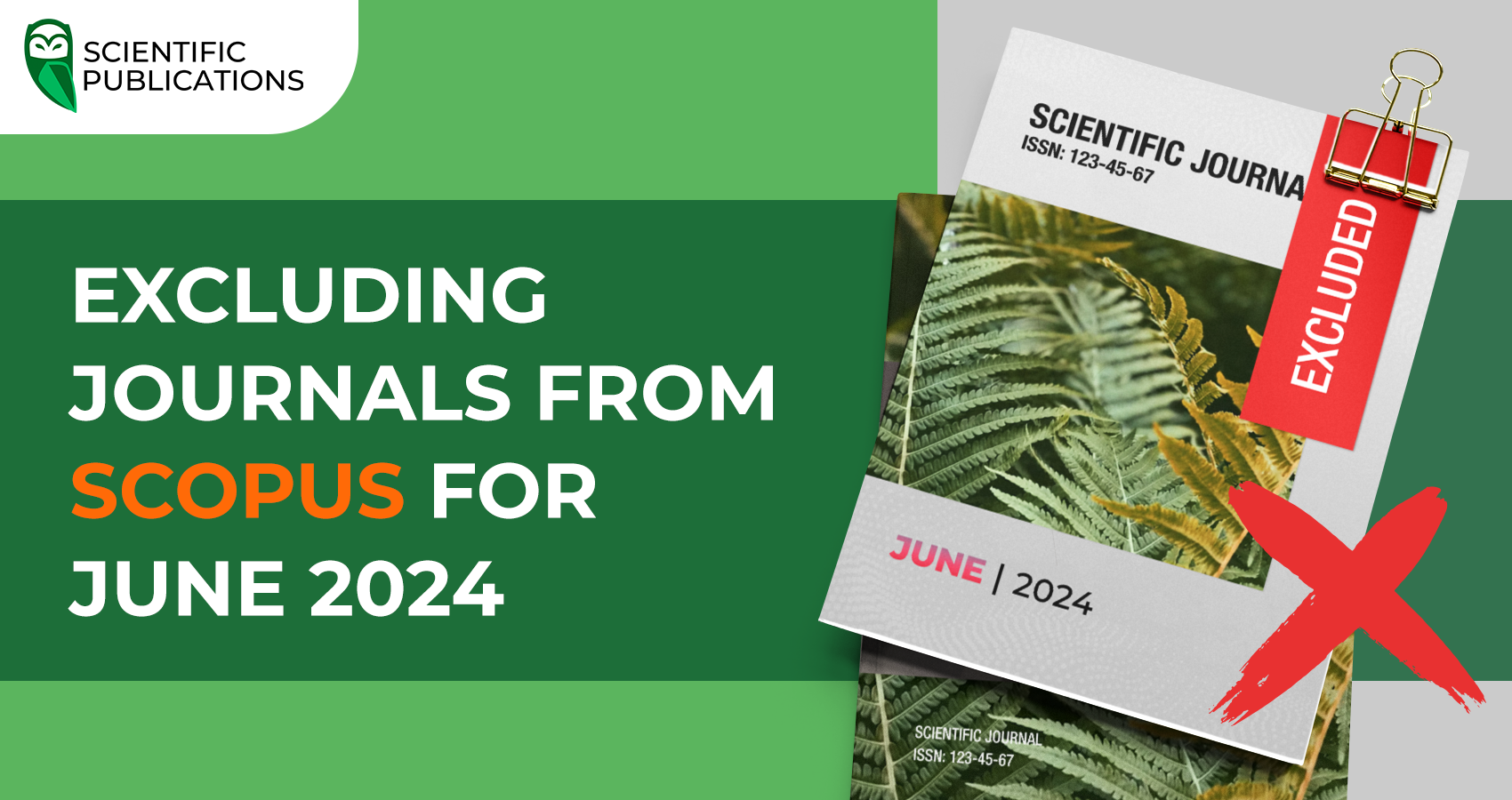Scientific Publications has traditionally prepared an updated list of scientific journals that are no longer indexed in the Scopus database. In our review, you can find the current list of publications that were excluded from the database in June 2024.

Why are journals excluded from the Scopus database?
Scopus is one of the leading scientometric databases in the world, which is focused on ensuring the high quality of published material. All journals included in Scopus undergo a rigorous review process by an independent advisory board. The Board evaluates journals based on the following criteria:
- scientific significance;
- transparency of peer review;
- regularity of issues;
- quality and relevance of scientific content.
The International Advisory Board removes journals that do not meet the high standards and requirements of Scopus from the database on a monthly basis.
The main reasons for indexing termination:
- low quality and relevance of publications;
- questionable editorial policy;
- excessive self-citation;
- consistently low scientometric indicators;
- violation of ethical standards.
Excluded scientific publications for June 2024
In June, indexing was suspended for 6 journals. The list of excluded journals can be found in the table below.
| № | Scientific Journal | ISSN / eISSN | Reasons for exclusion |
| 1 | American Surgeon | Print – 0003-1348 Online – 1555-9823 |
Radar |
| 2 | Corporate Governance and Organizational Behavior Review | Print – 2521-1870 Online – 2521-1889 |
Radar |
| 3 | European Journal of Contemporary Education | Print – 2304-9650 Online – 2305-6746 |
Publication Concerns |
| 4 | Journal of Health and Translational Medicine | Print – 1823-7339 Online – 2289-392X |
Radar |
| 5 | Journal of Medicine and Life | Print – 1844-122X | Radar |
| 6 | Universal Journal of Agricultural Research | Print – 2332-2268 Online – 2332-2284 |
Radar |
The main reason for the exclusion of journals from Scopus is the low quality of publications detected by the Radar system. This system automatically collects data on all indexed journals, including information on citations and the number of publications. Based on this data, the system analyses the journals and detects suspicious changes, such as a sharp increase in the number of publications or citations. Thus, Radar ensures constant control over the quality of scientific material published in the Scopus database.
Why is it important to check the indexation of a scientific journal in Scopus before submitting an article?
Publication in Scopus is a responsible and costly process that requires significant time and financial investments, as highly ranked journals often charge high publication fees. Therefore, before submitting an article, you need to make sure that the journal is still indexed in Scopus.
Reasons to check the indexing of a scientific journal:
- Avoidance of unscrupulous publications: a journal that previously had an excellent reputation may be excluded from the database due to violations of ethical standards
- Maintaining reputation: publishing in journals excluded from Scopus can negatively affect the authority of a scientist
- Low scientometric indicators: articles published in excluded journals receive fewer citations and become less visible to the global academic community.
Follow us on social media to keep up to date with the latest news in science and scientometrics. We regularly update the lists of excluded journals from Scopus and monitor global scientific trends.
If you have difficulty choosing a suitable journal for publication in Scopus, our experts will help you find a publication that meets your research goals. Leave a request on our website to get a free consultation from our specialist.





